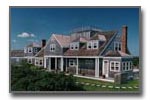 |
 |
 |

|
 |
12 Ways to
Save on Your Homeowner's
Insurance
The
price you pay for your homeowners insurance can vary by hundreds of
dollars depending on the company you buy your policy from.
Companies offer
several types of discounts, but they don't offer the same discount or the
same amount of discount in all states. That's why you should ask your
agent about any discounts available to you.
Here are 12 STEPS you can take to help you SAVE MONEY
on your HOMEOWNERS INSURANCE:
1.
Shop Around
But don't consider price alone. The insurer you select should offer both a
fair price and excellent service. Quality service may cost a bit more, but
you buy insurance in case you need to make a claim, so it's important to
get a company with a good reputation. Check the financial ratings of the
companies with
AM Best or
Standard and Poor's.
2. Raise your deductible
Deductibles are the amount of money you have to pay toward a loss before
your insurance company starts to pay. Deductibles on homeowners policies
typically start at $250.
Increase your deductible to:
$ 500 -- save up to 12 percent
$1,000 -- save up to 24 percent
$2,500 -- save up to 30 percent
$5,000 -- save up to 37 percent
Depending on your insurance company.
3. Buy your home and auto policies from the same insurer.
Some companies that sell homeowners, auto and liability coverage will take
5 to 15 percent off your premium if you buy two or more policies from
them.
4. When you buy a home...
Consider how much insuring it will cost.
A new home's electrical, heating and plumbing systems and overall
structure are likely to be in better shape than those of an older house.
Insurers may offer you a discount of 8 to 15 percent if your house is
new.
Check the home's construction:
In the East brick, because of its resistance to wind damage
In the West frame, because of its resistance to earthquake damage
Choosing wisely could cut your premium by 5 to 15 percent.
Avoiding areas that are prone to floods can save you about $400 a year for
flood insurance. Homeowners insurance does not cover flood-related
damage.
The closer your house is to firefighters and their equipment, the lower
your premium will be.
5. Update the systems in an older home.
Many insurers offer a home renovation credit of up to 15% if you have
replaced the major systems (heat, electrical, plumbing, roof) over the
last 25 years.
6. Insure your house, not the land
The land under your house isn't at risk from theft, windstorm, fire and
the other perils covered in your homeowners policy. So don't include its
value in deciding how much homeowners insurance to buy. If you do, you'll
pay a higher premium than you should.
7. Improve your home security and safety.
You can usually get discounts of at least 5 percent for a smoke detector,
burglar alarm, or dead-bolt locks.
Some companies offer to cut your premium by as much as 15 or 20 percent if
you install a sophisticated sprinkler system or a fire and burglar alarm
that rings at the police station or other monitoring facility. These
systems aren't cheap and not every system qualifies for the discount.
Before you buy such a system, find out what kind your insurer recommends
and how much the device would cost and how much you'd save on premiums.
8. Stop smoking.
Smoking accounts for more than 23,000 residential fires a year. That's why
some insurers offer to reduce premiums if all the residents in a house
don't smoke.
9. Seek out discounts for seniors
Retired people stay at home more and spot fires sooner than working people
and have more time for maintaining their homes. If you're at least 55
years old and retired, you may qualify for a discount of up to 10 percent
at some companies.
10. Stay with an insurer
If you've kept your coverage with a company for several years, you may
receive special consideration. Several insurers will reduce their premiums
by 5 percent if you stay with them for 3 to 5 years; by 10 percent if you
remain a policyholder for 6 years or more.
11. Compare the limits in your policy to the value of your
possessions at least once a year
You want your policy to cover any major purchases or additions to your
home. But you don't want to spend money for coverage you don't need.
12. Look for private insurance first
If you live in a high-risk area --- one that is especially vulnerable to
coastal storms, fires, or crime --- and have been buying your homeowners
insurance through a government plan, you should check with an insurance
agent. You may find that there are steps you can take that would allow you
to buy insurance at a lower price in the private market.
|
|


